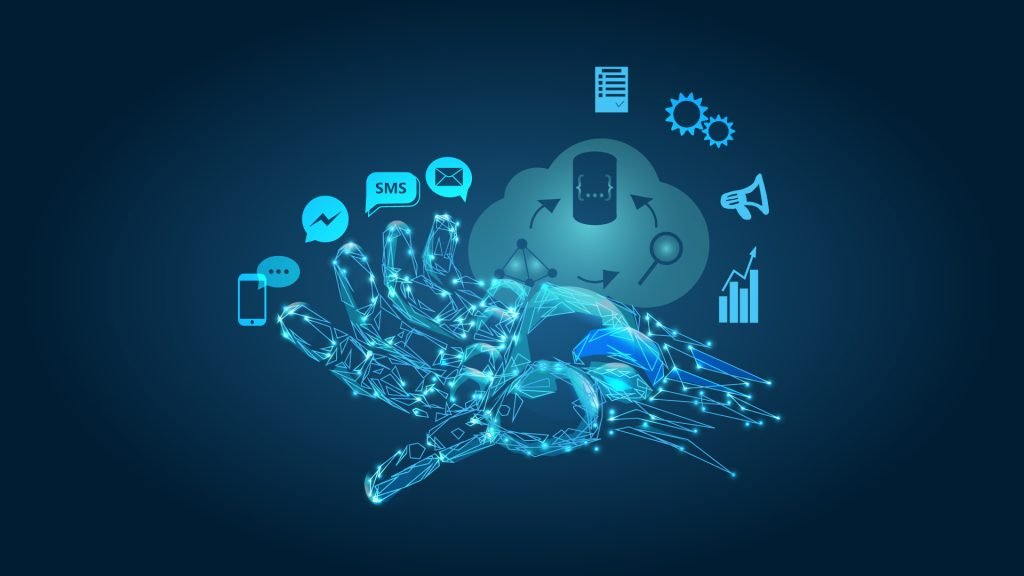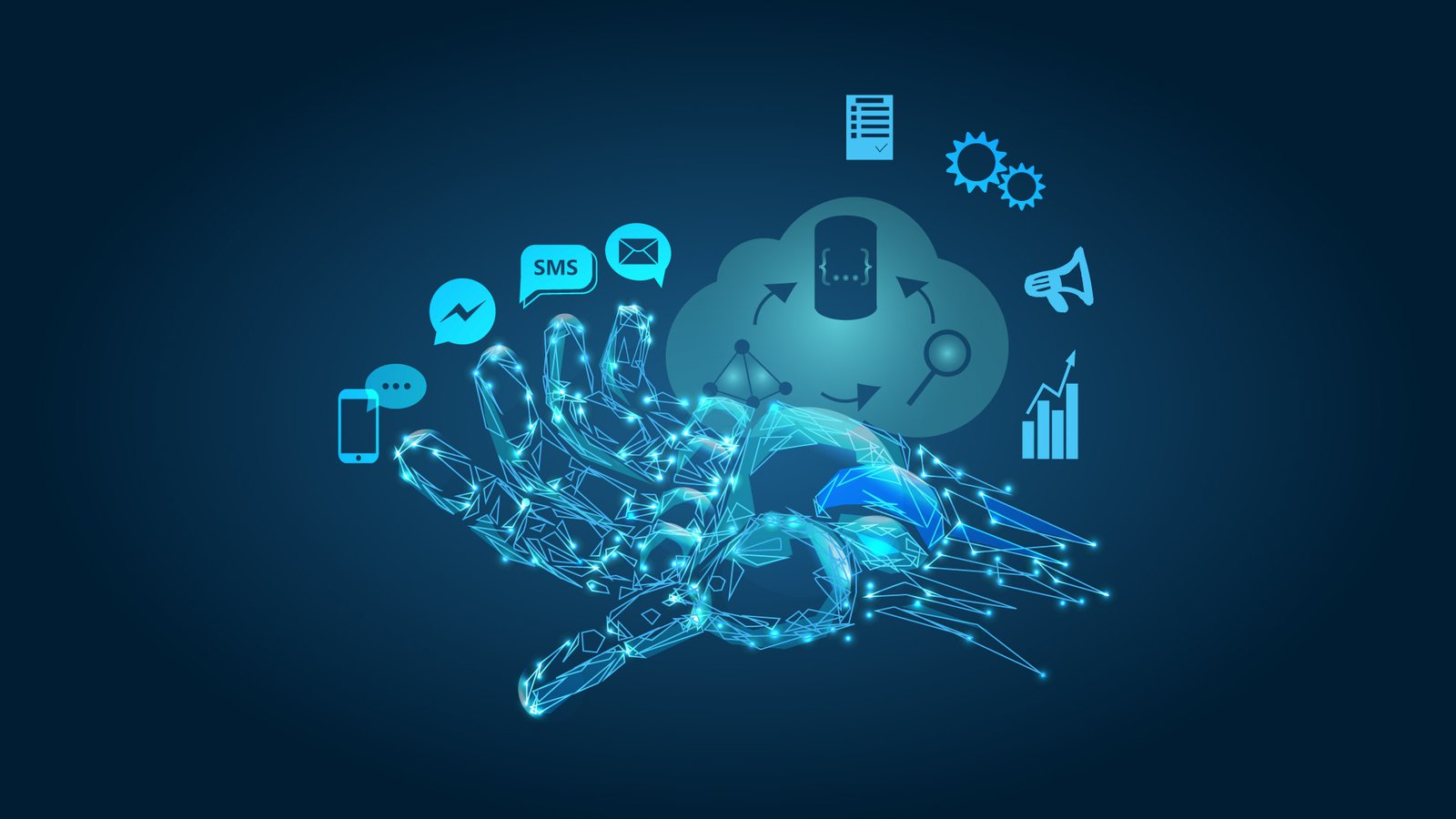
In the realm of technology, few trends have sparked as much excitement and speculation as Artificial Intelligence (AI). As we approach 2033, the potential of the global AI market is more significant than ever. This post will unveil the magnitude of AI’s impact, the transformation it’s expected to bring across various sectors, and the challenges it poses.
AI: A Game-Changer in the Tech World
AI has been a buzzword for years, but what sets the next decade apart is the unprecedented level of technological maturity AI is expected to achieve. With advancements in machine learning, natural language processing, and computer vision, AI is not just a tool but a game-changer that’s redefining how we live and work. From autonomous vehicles to personalized healthcare, AI’s potential applications are vast and varied.
Economic Impact: A Trillion-Dollar Market
By 2033, the global AI market is projected to reach new economic heights. Industries like healthcare, finance, and manufacturing are already seeing the benefits of AI, from streamlined operations to improved customer experiences. AI’s integration into these sectors is expected to drive significant economic growth, innovation, and the emergence of new business models. Additionally, AI’s role in enhancing productivity and efficiency cannot be overstated.
Navigating Ethical and Regulatory Challenges
As AI becomes more pervasive, ethical and regulatory considerations come to the forefront. Data privacy, algorithmic transparency, and the ethical use of AI are critical issues that need to be addressed. By 2033, we can expect more robust ethical frameworks and regulations to guide AI development and deployment, ensuring that its benefits are maximized while minimizing potential harms.
The Workforce in an AI-Driven World
The impact of AI on the job market is a topic of intense debate. While AI will automate certain tasks, it’s also creating new opportunities and roles in AI development, data analysis, and more. The challenge lies in preparing the workforce for these changes, emphasizing the importance of education and training in AI and related fields.
Frontiers of AI Innovation
Research in AI is moving at a breakneck pace, with significant developments in areas like deep learning and reinforcement learning. By 2033, we can expect AI systems to reach new levels of sophistication, enabling more complex tasks and decision-making processes. These advancements will open doors to innovations we’ve only begun to imagine, such as advanced AI assistants and more autonomous systems.
Global Dynamics of the AI Market
The race to dominate the AI market is global, with major players from the tech industry, along with emerging markets, playing crucial roles. This competitive environment fosters both collaboration and innovation, as companies, governments, and academic institutions join forces to push the boundaries of AI technology.
Addressing AI Challenges and Risks
AI’s ascent is not without its challenges and risks. Cybersecurity concerns, the responsible use of AI, and its potential for misuse are issues that need collective action from governments, organizations, and individuals. Ensuring that AI is developed and used in a way that benefits society as a whole is paramount.
AI in Healthcare: Transforming Medicine
One of the most significant impacts of AI by 2033 will be in healthcare. AI is revolutionizing how we diagnose diseases, develop treatments, and manage patient care. The next decade will likely see AI playing a crucial role in personalized medicine, offering treatments tailored to individual genetic profiles.
AI in Education: Shaping Future Learning
AI is set to transform the education sector, offering personalized learning experiences and bridging educational gaps. AI-driven tools can adapt to students’ learning styles, providing tailored content and resources. This will democratize education, making quality learning accessible to a broader audience.
Sustainability and AI: A Greener Future
Environmental sustainability is another area where AI can make a significant impact. AI technologies can help in monitoring and managing environmental resources, predicting climate patterns, and developing sustainable practices across industries. This could lead to more efficient use of energy and resources, contributing to a greener future.
AI in Smart Cities and Urban Planning
By 2033, AI is expected to play a pivotal role in the development of smart cities. With the ability to analyze vast amounts of data from various sources, AI can aid in efficient urban planning, traffic management, and energy distribution. AI-driven systems will help cities become more sustainable and livable by optimizing public transport, reducing congestion, and enhancing public safety through intelligent surveillance systems.
The Role of AI in Agriculture
The agriculture sector is another area where AI’s impact will be significant. AI technologies can aid in precision farming, crop monitoring, and predictive analysis of weather patterns. By optimizing resource use and improving yield predictions, AI can contribute to food security and sustainability. This advancement is particularly crucial as the global population continues to grow, and the demand for food increases.
AI and the Retail Revolution
The retail industry will also undergo a transformation driven by AI. Personalized shopping experiences, inventory management, and supply chain optimization are just a few areas where AI can make a difference. By analyzing customer data, AI can help retailers offer tailored recommendations, improve customer engagement, and enhance the overall shopping experience.
Championing AI in Creative Fields
AI’s impact isn’t limited to conventional industries; it’s also making strides in creative fields. By 2033, we can expect AI to assist in artistic creation, music composition, and even literary works. While AI won’t replace human creativity, it can serve as a tool to augment and inspire new forms of artistic expression.
The Ethical Implications of Advanced AI
As AI becomes more advanced, its ethical implications become more complex. The potential for AI to make decisions in critical areas like healthcare, legal systems, and finance raises questions about accountability and transparency. Developing ethical guidelines and ensuring that AI systems are fair and unbiased will be crucial challenges to address.
Preparing Society for AI’s Future
To fully harness the potential of AI by 2033, it’s essential to prepare society for these changes. This involves promoting AI literacy, ensuring equitable access to AI technologies, and fostering a culture of lifelong learning. Governments, educational institutions, and the private sector must work together to create opportunities for people to acquire the skills needed to thrive in an AI-driven world.
Final Reflections
As we look towards the future, the magnitude of AI’s impact by 2033 is clear. From transforming industries to reshaping our daily lives, AI’s potential is boundless. However, realizing this potential requires a thoughtful approach that balances innovation with ethical considerations and societal needs. By embracing AI as a tool for positive change and addressing its challenges head-on, we can ensure that the AI revolution benefits humanity in profound and meaningful ways.



